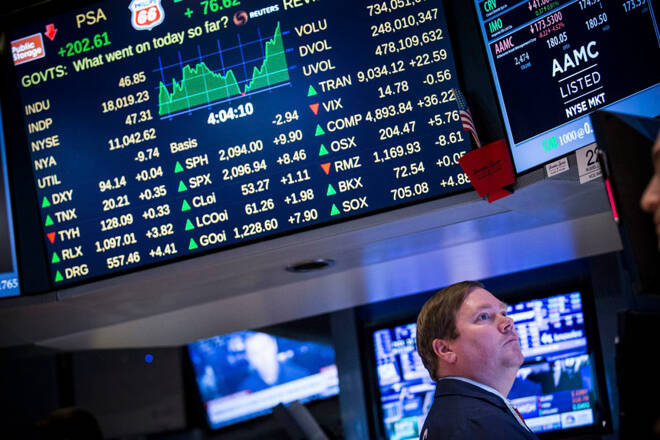Advertisement
Advertisement
Strong Inflation and Apple Repatriation Lift European Shares
By:
Apple Buoys Stocks with Repatriation of Capital
European stock markets are mostly higher, with FTSE 100 and IBEX 35 underperforming, while the DAX gained and the MDAX climbed to record highs after gains in Hang Seng and ASX 200 following solid Chinese GDP numbers. The Nikkei underperformed, and U.S. stock futures are narrowly mixed and while confidence in the global economy is keeping indices at high levels, there are also concerns of overbought conditions. Apple announced the repatriation of billions of dollars from overseas giving the broader markets a boost.
Crude oil is fractionally higher on the day, which marks a second day of consolidation for oil prices. The weekly API report showing a ninth straight week of declining in crude U.S. inventories and, second, by reports that militants in Nigeria were threatening an attack on the country’s offshore oil facilities. Official EIA inventory data for the U.S. it due later today, the median forecast for a 3.5 million barrel decline.
Apple tax repatriation haul may total $38 billion for the U.S. government, according to earlier reports, plans which may contribute some $350 billion to the U.S. economy over 5-years along with a potential increase in 20k jobs and another tech campus. Apple shares were whipsawed by the announcement, before climbing some 0.5% to the $177.04 area, though the news shouldn’t be that big of a surprise measured against its overseas mega cash stash.
Eurozone Housing Price Inflation Accelerated
Eurozone house price inflation accelerated in Q3 last year. Official Eurostat data for the third quarter of 2017 shows overall Eurozone house prices rising 1.7% quarter over quarter, up from 1.4% quarter over quarter in Q2 and bringing the annual rate to 4.1% year over year, from 3.7% year over year in the previous quarter. The data will add to concerns that the ECB’s ultra-accommodative monetary policy is fueling asset price bubbles, although at least in Germany, increases are starting to slow down, with the annual rate falling back to 3.6% in Q3, below the Eurozone average and sharply down from the 6.9% year over year in the last quarter of 2016. Ireland, Portugal and the Netherlands meanwhile saw double digit house price increases and the Spanish rate accelerated to 6.7% year over year in Q3, so Draghi’s critics have a point.
Eurozone car registrations slowed in December, with the annual rate falling back to 4.4% year over year from 8.7% year over year in the previous month. The three months trend remains strong and car registrations went up in Q4 compared to Q3, adding to signs that overall economy growth remained robust.
About the Author
David Beckerauthor
David Becker focuses his attention on various consulting and portfolio management activities at Fortuity LLC, where he currently provides oversight for a multimillion-dollar portfolio consisting of commodities, debt, equities, real estate, and more.
Advertisement
